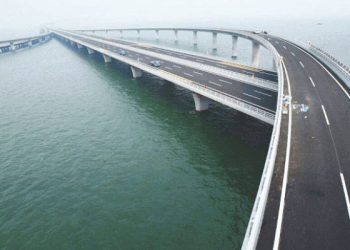The disclosure that the federal government has saved N588billion from 2009 till date through implementation of the Public Procurement Act 2007 is certainly a welcome development in this season of dwindling national revenue due to falling crude oil prices. The Director-General, Bureau of Public Procurement (BPP), Emeka Eze, had disclosed this at the recent National Conference on Public Procurement. He said that before the implementation of the Procurement Act, the nation was losing several billion naira annually in the award and implementation of public contracts through fraudulent practices such as inflation of contract costs, poor budgeting processes, lack of competition and value for money, lack of procurement plans, and poor project prioritization.
Another interesting aspect of the issue is the revelation by Mr. Eze that the BPP recommended more than 180 companies to the Economic and Financial Crimes Commission (EFCC) and the Independent Corrupt Practices Commission (ICPC) over tax fraud, forgery and sundry corrupt practices. We however find it disappointing that there is no evidence that these organizations that allegedly violated the public procurement and other anti-corruption laws were conclusively prosecuted and punished on conviction. As a country that has been so steeped in corruption in public contract awards for years on end, government at all levels, must summon the will to support the BPP and the anti-corruption agencies to implement the laws to the letter and ensure that offenders, irrespective of political leanings, are diligently prosecuted and sanctioned when found culpable. This is the only way to drive home the point that government will henceforth have zero tolerance for corruption and it will no longer be business as usual.
Obviously, the huge sums of money cited as saved from the public treasury before the implementation of the procurement Act, could have been much more had all the 36 states with the 744 local governments in the country replicated the initiative of the federal government on good procurement practices earlier by enacting appropriate enabling laws. Without the appropriate legal framework in place, and the political will by the leaders across all tiers of government to see it through, the pervasive corruption characterized by bribery, political patronage and nepotism will continue to be the order of the day. It is gratifying that 24 states in the country have enacted their versions of the Public Procurement Act (PPA) and are on the verge of implementation.
Definitely, the absence of enabling legislation is a lacuna that aids corruption in the procurement process. We urge the states concerned to holistically implement their procurement laws to eliminate corruption and save scarce public funds for providing essential infrastructure for the people, especially now that most of the states are reeling under the effect of depleted revenue from the federation account which is the mainstay of most states. Besides, the states, like the central government, need the public procurement laws as indispensable tools for fighting corruption in their domains. For as the DG, Bureau of Public Procurement, Mr. Eze rightly observed, attempts by the Economic and Financial Crimes Commission (EFCC) to prosecute cases of corruption involving contract awards investigated by the agency was stalled because federal procurement laws were not applicable in the states.
As for the twelve states that are yet to enact their procurement laws and entrench the relevant structures, it is obvious that they are doing a great disservice to their people. It behooves of the governors and members of State Houses of Assembly of these States to embrace the noble and redeeming initiative on public procurement as a veritable instrument for good governance. The civil society groups on their part must mobilize the citizens as need arises to demand that the needful be done to ensure good governance and governments’ accountability to the people.













































